Apart from the traditionally gendered spaces that come to mind, like restrooms and lockers rooms, one just needs to look around one to discover spaces which are still inhabited by specific genders. How territorial do we keep our spaces? The roles we are handed when born and the positions we come to hold in life, dictate the locations we occupy. This photo-essay is a look at spaces still occupied by specific genders in the majority.
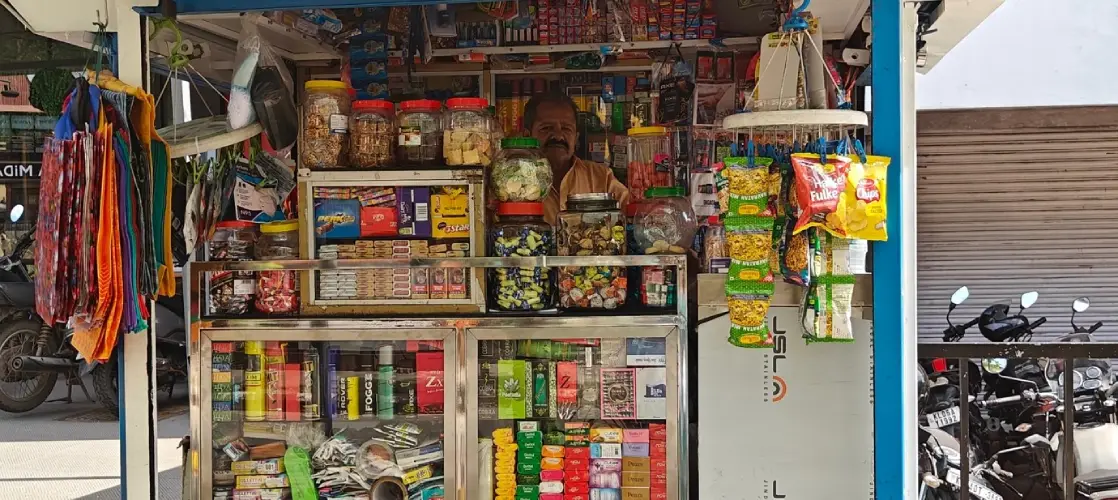
Boss! Ek chai dena!
Ubiquitous throughout any town or city, the tea-stall is the meeting place for a smoke and a tea. For a post lunch pick-me-up, after a late night bike ride, a resting place, where deals are made and broken, a place of refuge. Pass by anytime, but especially when offices shut for the day, the tea-stall is the break room. A sea of formal shirts and trousers, leather shoes crushing a smoked butt , piping hot tea in hand. There is no stag entry needed for this party.
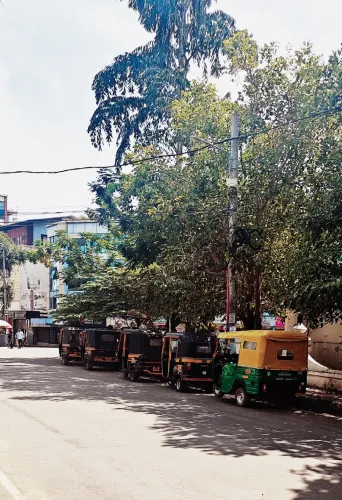
‘Road Kings’
An auto-stand at a busy intersection. One must have the right vocabulary, attitude and change in hand to have a pleasant ride. According to statista, out of the cumulative 236 million valid driver’s licences in India( not specific to any type of vehicle and in the year 2020), 6.8 % of that number belonged to women. Still very much a male dominated sector, it is only in recent times that women have been venturing out to becoming auto and taxi drivers.
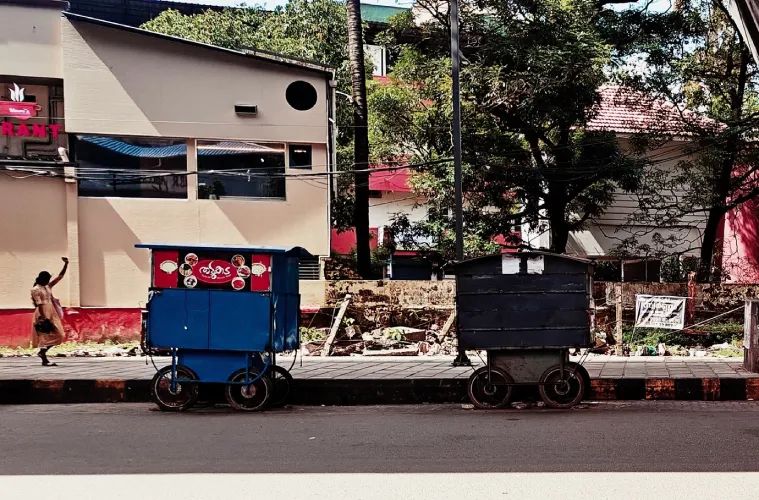
Men after 10 p.m
During the day food stalls remain empty since most do brisk business at night. Bus and taxi drivers, food delivery personnel, bike riders sit on plastic stools with plates full of carb- heavy food in their hands amongst revellers out for the night. Mostly seen as a special and unique experience for most women, taken there usually by a male companion, it is an easily accessible and affordable option for men.

Multi-tasking stove
Labour force participation of Indian women ranks among the lowest in the world (27%). India’s first time use survey which was published in 2020 showed that 82% of women in rural areas and 79% of women in urban areas engaged in unpaid domestic work compared to 27 .7% of men in rural areas and 22.6 % of men in Urban areas.
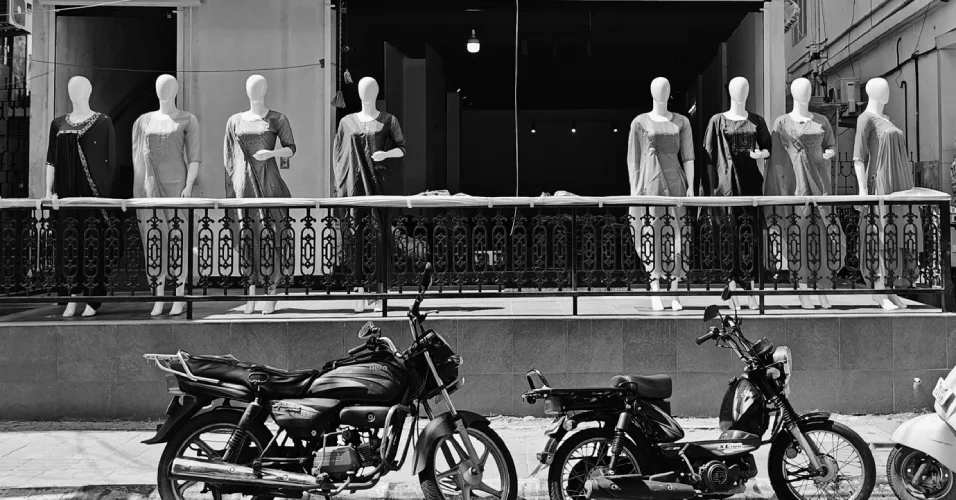
Dressed for a party
Mannequins stand dressed in front of a shop under construction. With the emergence of social media and e-commerce sites where one can eliminate the middle man, more and more women are turning to selling textiles from right their very homes giving them economic independence and business skills.
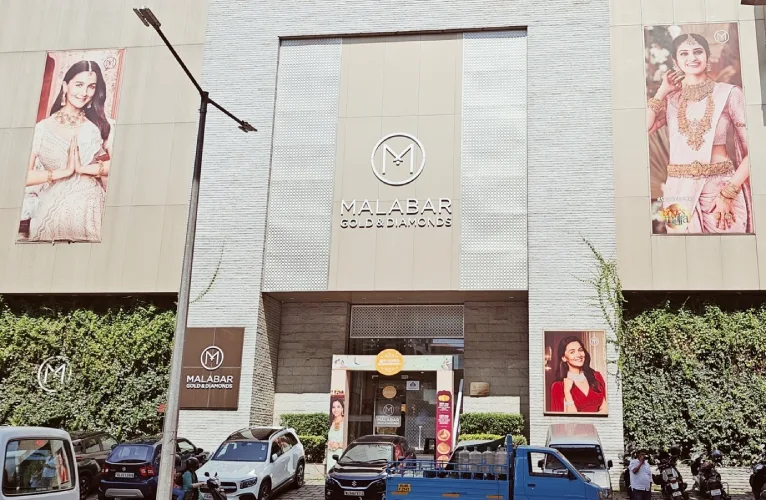
I give you her weight in gold
A popular gold shop in a tier two city. Gold is seen as a marker for many things in a woman’s life. Social standing, prosperity, security and beauty. Buying gold becomes a frenzied activity for families when the time for marriage approaches with the amount of the precious metal adorned by the bride being a sign of the family’s wealth and status.
Kameswari is a sometimes radiologist, sometimes writer, sometimes entrepreneur and a full time mother. She is based in Bangalore and Cochin. When she writes, she picks topics closest to home and heart, having been published in the arre, citizen matters, the quint and the museum of material memory. You can find her on Instagram as @kameswari.
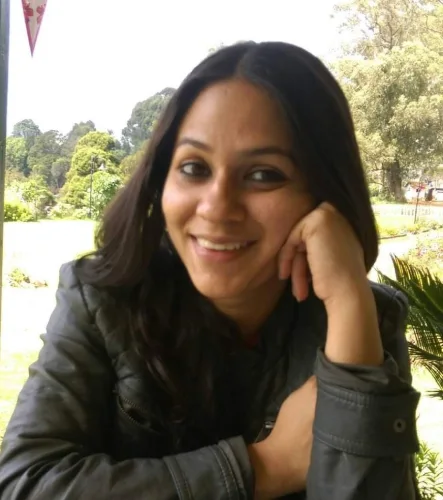
Subscribe to our newsletter To Recieve Updates
Join our newsletter to receive updates